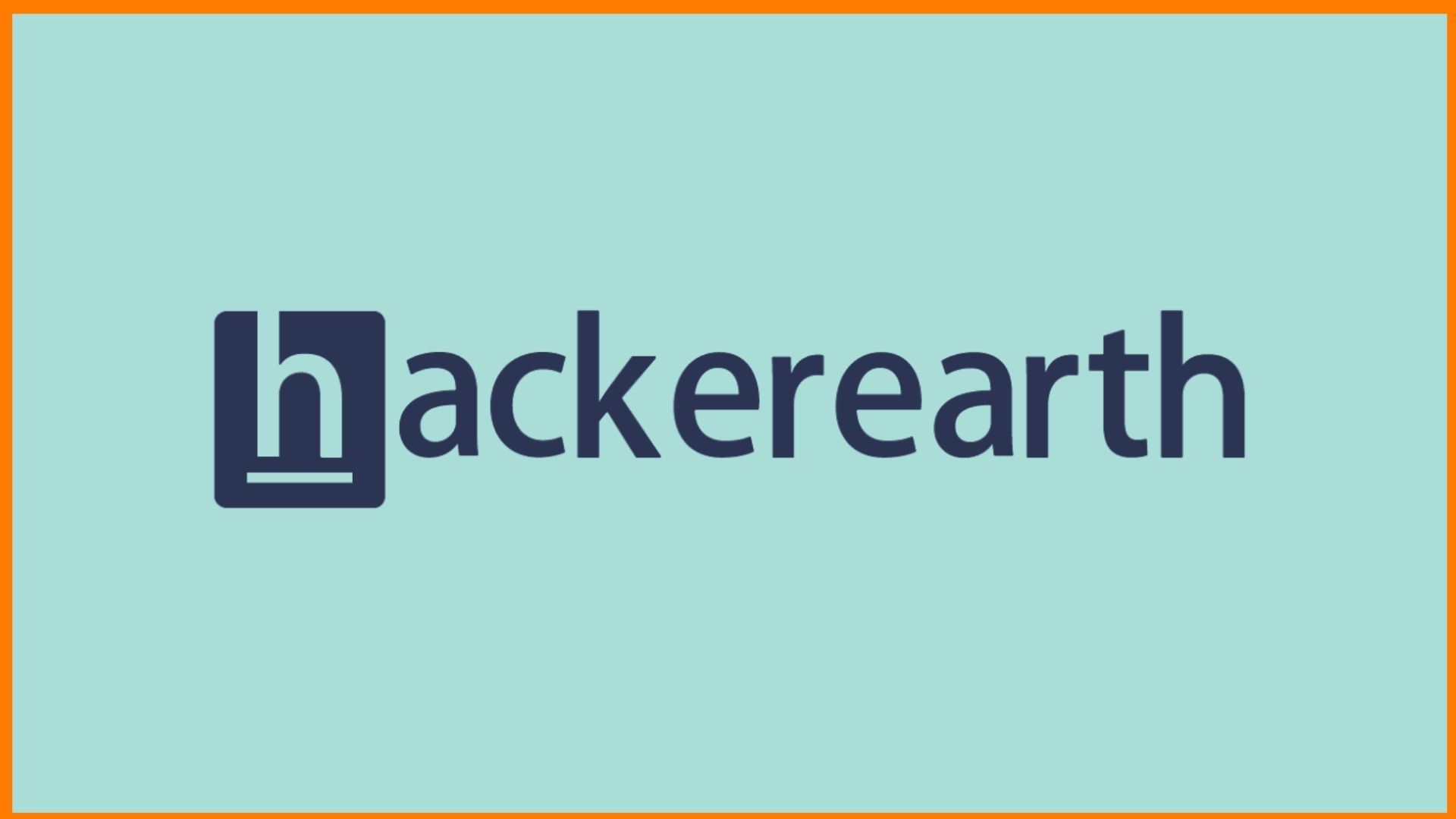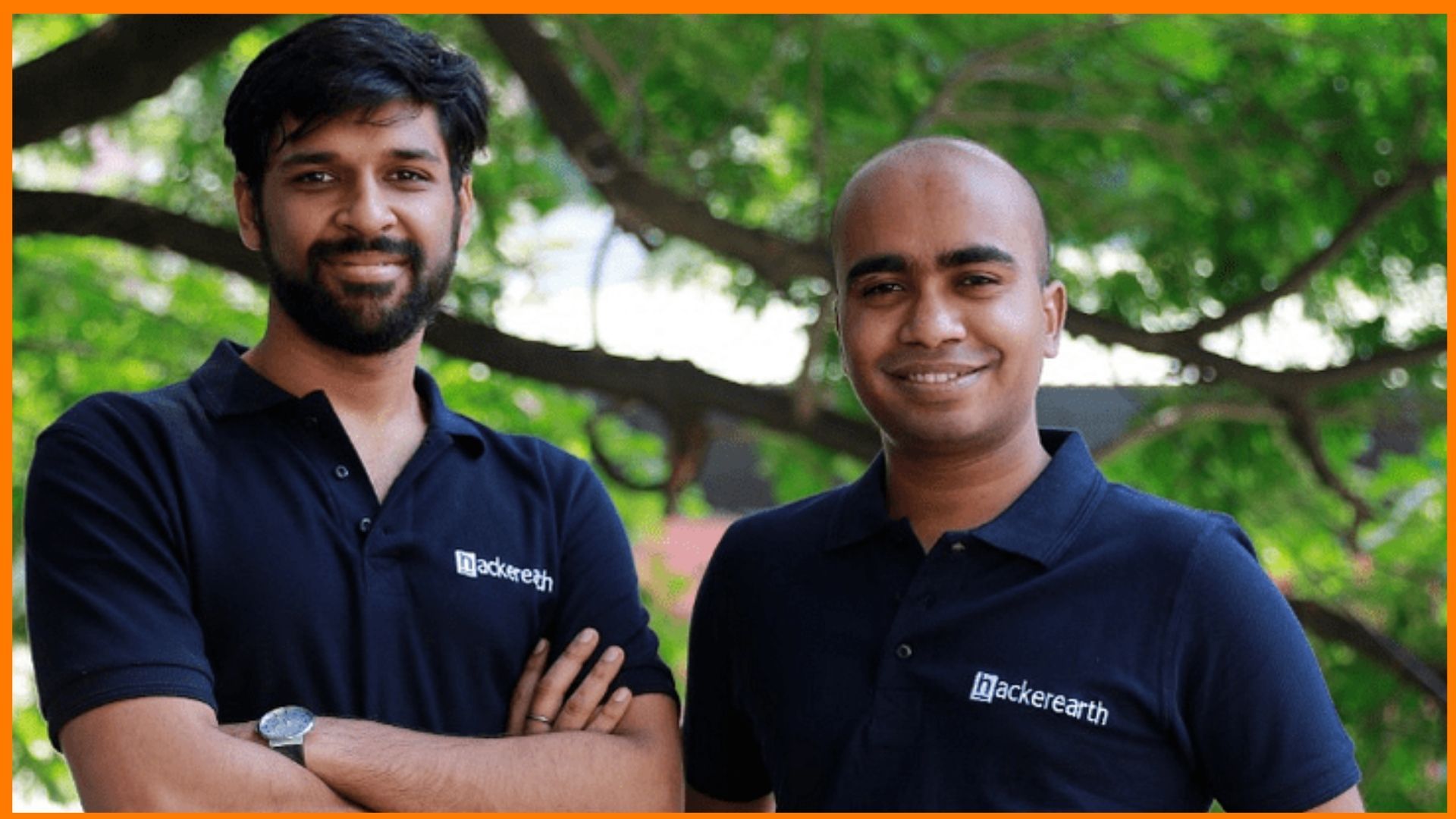HackerEarth - Crowdsourcing Solutions from the Developers’ Community!
📄Company Profiles
As it is correctly said, people who solve problems the best have suffered the most. Similarly, Sachin Gupta and Vivek Prakash being app developers themselves launched their startup HackerEarth in 2012 with the motive to build an entirely meritocratic system using a sufficiently objective measure for an app developer’s skills.
Their initiative was driven by the fact that the number of technology employment opportunities are growing at an exponential rate. And with the advent of digitization, more and more jobs are being available to Information Technology (IT) professionals. Still, there are a bunch of app developers who do not get the job they deserve.
HackerEarth - Company Highlights
| Startup Name | HackerEarth |
|---|---|
| Headquarter | San Francisco Bay Area, West Coast, Western US |
| Sector | Edtech and Recruiting Platform |
| Founders | Sachin Gupta, Vivek Prakash |
| Founded | 2012 |
| Parent Organization | HackerEarth Inc. |
| Website | hackerearth.com |
About HackerEarth and How it Works
HackerEarth - USP and Innovation
Founders of HackerEarth and team
How was HackerEarth Started?
HackerEarth - Startup Launch
HackerEarth - Business Model and Revenue Model
HackerEarth - Startup Challenges
HackerEarth - Funding and Investors
HackerEarth - Growth
HackerEarth - Future Plans
Check out this List of EdTech Startups in India | Emerging Education Startups
About HackerEarth and How it Works
HackerEarth mainly focuses on crowd sourcing solutions from the developers’ community. So, it ideally provides enterprise software solutions that help organizations to manage the firm with effective innovation and solve their technical recruitment needs.

They also have launched a second version of the innovation management software. This new version focuses on creating a holistic innovation management unit within the company itself. This, in turn, paves the way for enhancing greater creativity and a culture of innovation in the organization. Also, the new version puts extra focus on security, customization, and verticalization of the product across various industries.
All in all, HackerEarth’s innovation management software is a superiorly indispensable platform for enterprises that helps them to tackle various problems through internal and external audiences respectively.
HackerEarth - USP and Innovation
- HackerEarth holds a community of more than 2 million-plus app developers coming from more than 57 countries backed by robust platforms to swiftly drive superior innovation in the industry.
- HackerEarth also has launched an initiative where they enable enterprises to host innovation challenges for business-related problems and the startups can participate. This initiative is called Startup Connect.
- The startups who perform well are shortlisted and get a chance to work with enterprises to co-create creative and innovative solutions.
Also read: Aviate – Making College Students Job Ready
Founders of HackerEarth and team
HackerEarth was founded by Sachin Gupta and Vivek Prakash in 2012.

Both of the co-founders, Sachin Gupta and Vivek Prakash, are hardcore programming graduates from IIT Roorkee. And both of them at different points interned and also worked with Microsoft and Google
Sachin Gupta, CEO, and Co-founder - Having been a startup founder for most of his professional life, Sachin Gupta is an entrepreneur by heart. He claims that he absolutely loves doing whatever it takes to build a company and is powerfully driven by things that challenge him.
Vivek Prakash, CTO, and Co-founder - A programmer at heart, a dual degree holder in computer sciences. Vivek leads the Information Management Group at IIT Roorkee and has also been a part of Google Summer of Code program.
Currently with 120 members, HackerEarth has close to 45 people in engineering, 15 marketers, and 25 sales representatives, with the rest in operations.
How was HackerEarth Started?
Like many other startups, HackerEarth also started in the dorm room. These two individual’s passion for app development was at an all-time high when they were in college. Taking the same passion forward, they thought that it’d be a great idea to build a product that cultivates the culture of coding amongst the students in India.
And that’s how they came up with MyCareerStack. After its huge success, they again put their passion for driving seat and thought of exploiting the problems that companies face while recruiting. And to create a solution to this, they launched HackerEarth.
Relevant read: Skillate- Solving the Complications of Recruitment Flawlessly
HackerEarth - Startup Launch
HackerEarth penetrated in the market with the strategy for creating programming courses to majorly serve two purposes:
- To enable the programmers to practice and learn code.
- And to allow the programmers to compete with other programmers through exciting and meaningful contests.
HackerEarth has created some interesting programming challenges with certain levels of difficulty which appeal to all the developers on a global level. They are called Hackathons.
Hackathons provide a great platform for developers to showcase their talent. These type of programs keeps the programmers engaged and allows them to practice and learn code in a fun way. At HackerEarth, the range of learning varies from basic concepts to advanced ones. The basic concepts include modules like Algorithms and Data structures and the advanced concepts include modules like Machine Learning.
HackerEarth - Business Model and Revenue Model
So ideally, there are two products that HackerEarth has to offer. Both the products are essentially sold as SaaS:
- HackerEarth Sprint- It is an innovation management software that helps companies drive creativity and innovation through internal and external talent pools. This includes its global community of 2M+ developer and they work with large enterprises, SMBs, Universities, and Government entities to help them effectively solve their innovation needs.
- HackerEarth Recruit- This is a more on the technology side. It is a technical recruitment interface that helps in optimum technical talent screening which allows its clients to build a strong and proficient team.
HackerEarth - Startup Challenges
The biggest challenge for HackerEarth like any other startup is to scale the programmers and keep them engaged on HackerEarth. It seems like stronger the hub, easier is the business operations. So for HackerEarth, everything stems from the hub and scaling it across the world is the biggest hurdle to toss.
Relevant read: How Hiring is Affected due to Coronavirus Outbreak?
HackerEarth - Funding and Investors
HackerEarth has raised a total of $11.5M in funding over 5 rounds. Their latest funding was raised on Nov 1, 2018 from a Series B round.
Here is a list of all the funding rounds of HackerEarth-
| Date | Stage | Amount | Investor |
|---|---|---|---|
| June 2013 | Venture Round | - | - |
| February 2014 | Seed Round | $500K | Prime Venture Partners |
| April 2014 | Seed Round | - | - |
| February 2017 | Series A | $4.5 Million | DHI Group Inc |
| November 2018 | Series B | $6.5 Million | - |
HackerEarth - Growth
- HackerEarth's corporate client's list is seamlessly unending. This list includes huge companies like Wipro and Adobe.
- Since the launch to now, HackerEarth has been growing exponentially. Now, they are a team of 120+ people, are catering to more than doubled user base and grew their revenues 5X.
- Also, HackerEarth has grown into a global community of 2+ million developers driving creativity and innovation to the field like a force.
Also read: Colangels - Connecting you with right people
HackerEarth - Future Plans
- Expanding the brand presence across other countries with a prime focus on US, Europe, and SouthEast Asia is number one on the list of HackerEarth’s plans.
- HackerEarth is aiming to be the largest platform for developers. Hence their long term plan is to add over a million more programmers to this community over the next few years.
"This is the right time for us to look at markets overseas, when our India business is still growing, rather than a time when we are reaching saturation in this market. At present, 85 percent of our revenues come from India and 15 percent from international markets. In three years, we see this balancing out to a 50-50.", said Sachin Gupta, co-founder of HackerEarth.
Must have tools for startups - Recommended by StartupTalky
- Convert Visitors into Leads- SeizeLead
- Website Builder SquareSpace
- Run your business Smoothly Systeme.io
- Stock Images Shutterstock





